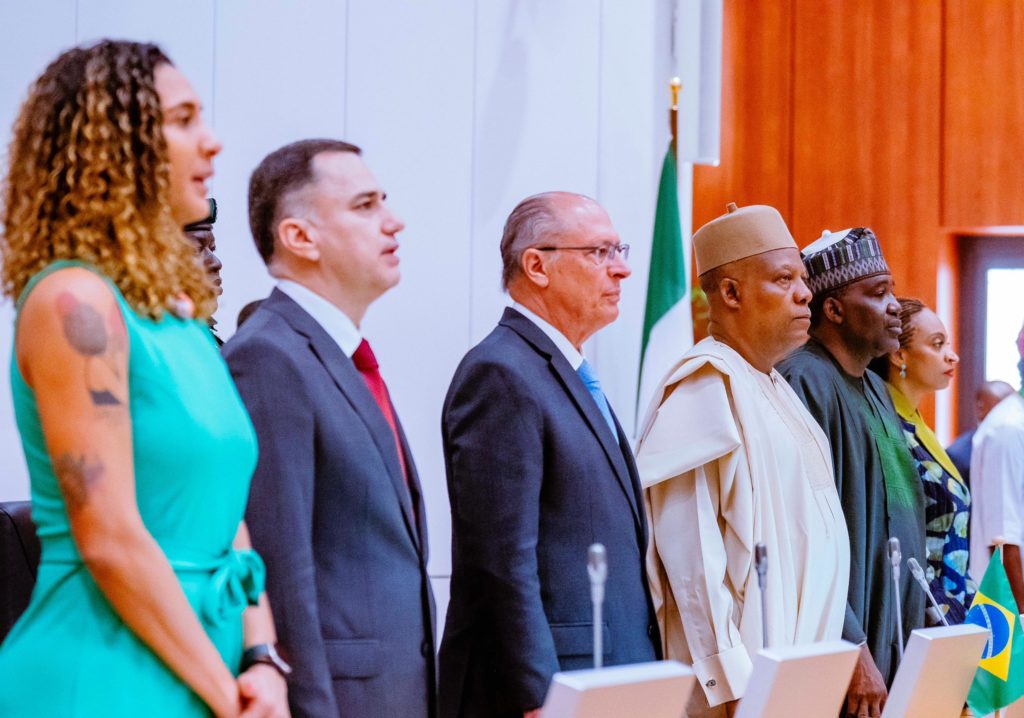The Federative Republic of Brazil investors have been contacted by the Nigerian government to entice them to make investments in the nation’s economy.
This is in response to the country’s trade sagging to $ 2 billion from the $ 9 billion it was in 2015.
The Minister of Industry, Trade and Investment, Jumoke Oduwole, stated at a business forum in Abuja on Wednesday that Brazil’s exports to Nigeria, from machinery to poultry, exceeded $ 900 million in 2017. Less than $ 900 million was exported, primarily oil, cocoa, uraia, and sesame, by Nigeria.

Read more about Brazil and Nigeria signing a $1 billion agreement to boost food production.
The two nations, in her opinion, underutilize their investment opportunities for better trading.
Brazil and Nigeria are not new countries. We have deep cultural, diplomatic, and historical ties. However, having a global economy that is rapidly changing requires more than just familiarity. To create structure, unlock scale, and pursue concrete outcomes is when we need to act.
By positioning the Nigeria-Brazil corridor for growth in the 21st century, we mean more trade, better trade, goodwill, clear frameworks, measurable impact, and co-investment.
The total trade between Nigeria and Brazil is currently just under $ 2 billion, which is a sharp decline from the $ 9 billion it was a decade ago. This indicates two things: first, that we have allowed opportunity to pass by us, and second, that the possibility of a rebound is real and well within our reach. Last year, Brazil’s exports to Nigeria totaled $ 970.000, moving from machinery to poultry. Less than $ 900 million was exported, primarily oil, cocoa, Uria, and Sesame, according to Oduwole.
She praised the significant reforms being carried out by President Bola Tinubu’s government and assured the Brazilian government that the Nigerian government was ready to conduct business.

Our primary responsibility at the Federal Ministry of Industry, Trade and Investment is to facilitate transactions as well as to track transactions. We are working on significant structural reforms, unifying exchange rates, eliminating the fuel subsidy, ratifying the Investments and Securities Act, and introducing frameworks to unlock capital across key sectors under President Bola Tinubu’s renewed Hope Agenda.
These are already displaying results, they say. In the first quarter of 2025, Nigeria’s non-oil exports increased by nearly 25%, reaching nearly $1.8 billion. Last October, Brazil was our top destination for non-oil exports. And this demonstrates two things: first, that there is a need, and second, that if the strategy is followed, the Nigeria-Brazilian corridor could serve as a testbed for African and Latin American trade on an international scale.
“Let me briefly discuss our priorities, agriculture and agro-industry. Rice, cassava, sugar, and dairy products are all irrigated value chains. The Honorable Ministers responsible for these portfolios are in the room with us. Digital Trade: Nigeria is proud to be the African Continental Free Trade Area, the co-champion of digital trade.
Our Creative Economy: Our cultural exports, including film, fashion, music, and food, are growing, and we are investing in cross-border e-commerce, digital identity systems, and there is room for Brazil’s FinTech and logistics solutions. In Lagos and Sao Paulo, “we see room for co-production, licensing, and intellectual property monetization,” she said.
Source: Channels TV

Leave a Reply